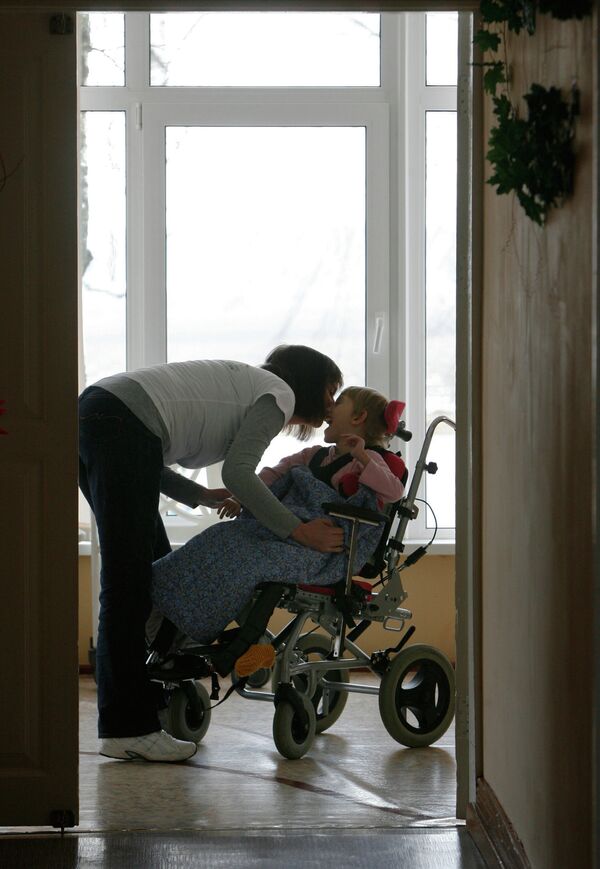MOSCOW, September 15 (RIA Novosti) - Nearly 30 percent of all children with disabilities in Russia live in state orphanages, though 95 percent of them have at least one parent, according to a Human Rights Watch (HRW) report.
"The Russian government can be doing much more to support parents raising a child with a disability, rather than pushing children into institutions," said Andrea Mazzarino, a HRW Europe and Central Asia researcher and author of the report "Abandoned by the State: Violence, Neglect, and Isolation for Children with Disabilities in Russian Orphanages" published Monday.
"The Russian government should establish a zero-tolerance policy for violence against children in institutions and immediately strengthen programs to keep children in their families," Mazzarino said.
Approving of the steps the Russian government has already taken to address the high rates of child institutionalization and to support their inclusion into the community, Human Rights Watch emphasized there is still much work left.
The report outlines such problems as a lack of access to necessary health care, a lack of adequate nutrition and attention, insufficient opportunities for play and low levels of formal education. The problems cited usually result from poor training programs for orphanage staff, as well as understaffing.
In cases the organization documented, many children with disabilities ended up in orphanages because healthcare workers pressured their parents to give them up. The Russian government has launched a program to move away from the overuse of the institutionalization of children, including children with disabilities.
Under international law, Russia has a commitment to protect children from all forms of violence and neglect in order to ensure that children with disabilities are not separated from their parents against their will and to protect children with disabilities from all forms of discrimination.
Among the steps the Russian government has taken, reaffirming its commitment to protect children from all forms of violence and neglect under international law, is the National Action Strategy on the Rights of Children for 2012-17. The action plan includes measures to prevent the abandonment of children to institutions and a decrease institutional care. Among the key principles of the strategy are the implementation of "the fundamental right of every child to live and be raised in a family," "realization of the full potential of every child," health and rights protection and "special attention to the vulnerable categories of children."
Human Rights Watch recommended to the Russian Government, including the Ministries of Labor and Social Protection, Health, and Education, that concrete time-bound plans for implementation and monitoring should be formulated.
The HRW report is based on over 200 interviews with children, family members, advocates, and orphanage staff, and visits to 10 state orphanages across Russia where children with disabilities live.


